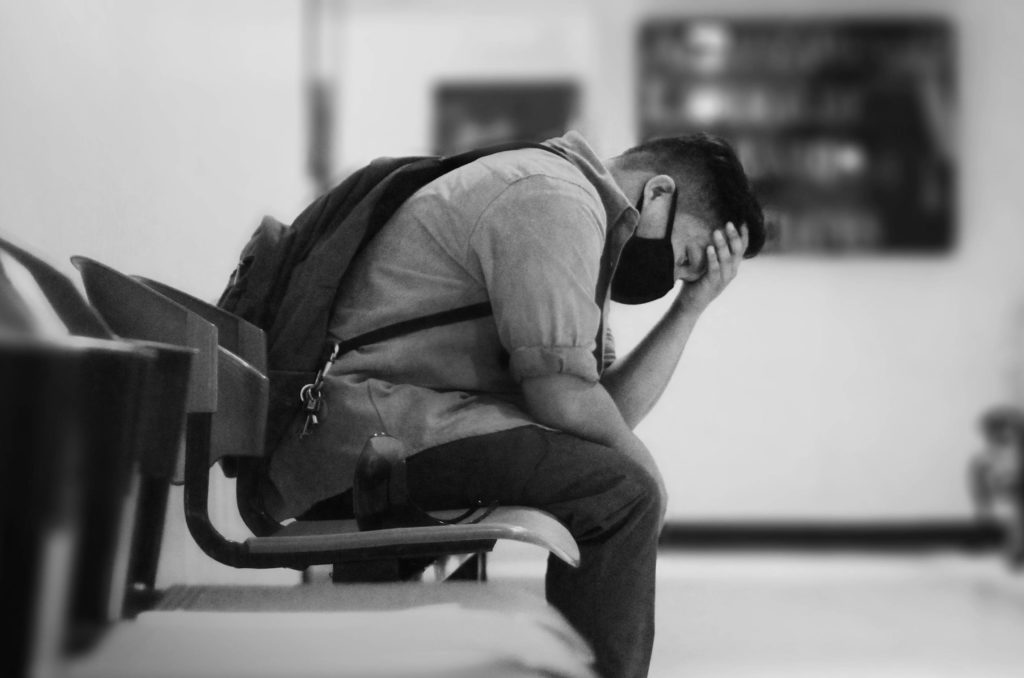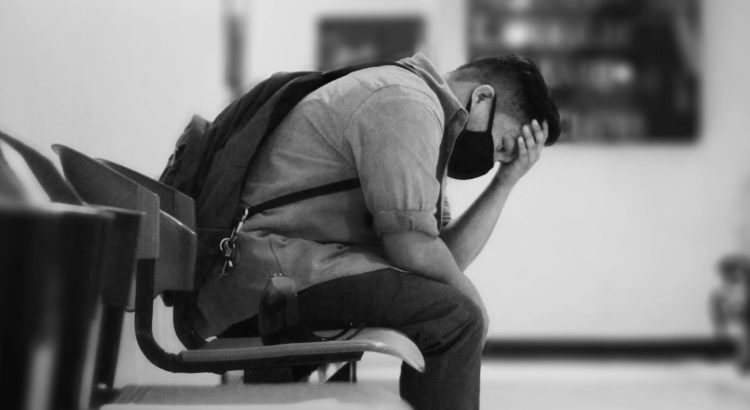
A pandemic-related phenomenon
As COVID-19 was taking hold in early 2020 Professor Ana Nikčević (Kingston University) and I were beginning to think about the possible psychological consequences of lockdowns, fear messaging and the multitude of recommendations for ‘keeping safe’. Our hypothesis was that we may, collectively, run the risk of developing coping strategies in dealing with the threat of the virus that may keep us in a state of heightened concern, even when returning to normal.
We identified four broad coping strategies (avoidance, worry, threat monitoring and checking) that may ‘backfire’ and keep us locked in ‘within’ and developed a psychometric measure to assess them, the COVID-19 Anxiety Syndrome Scale. The measure was published in the journal Psychiatry Research in 2020. Further studies published in the Journal of Affective Disorders and Clinical Psychology & Psychotherapy have confirmed the existence of COVID-19 Anxiety Syndrome, with findings indicating that higher scores on the COVID-19 Anxiety Syndrome Scale are not only associated with psychological distress, work and social adjustment and COVID-19 fear, but also correlate with attentional bias indices relating to COVID-19 threat.
In a recent (soon to be published) study including 975 participants from a UK sample surveyed in June 2021 (one month after coming out of full lockdown) it was confirmed that approximately 1 in 5 of the respondents were markedly affected by the COVID-19 Anxiety Syndrome. In the total sample one third reported avoiding public transport because of fear of contracting the virus, just over 40% reported avoiding touching objects in public spaces because of the fear of contacting the virus, almost 25% reported monitoring possible symptoms in others, and 11% reported following pandemic-related news even at the expense of work engagement. Remarkably, vaccination status was not associated with a lower presence of COVID-19 Anxiety Syndrome.
Susceptibility to COVID-19 Anxiety Syndrome
Our findings from different stages of the pandemic show that there are clear differences in dealing with the threat posed by COVID-19. Some people — those who score high on the COVID-19 Anxiety Syndrome Scale — have adopted unhelpful coping strategies which inadvertently will keep them in a state of fear of contracting COVID-19. For these people, returning to normal may prove very difficult — for example not wearing masks, or being physically close to people — the coping strategies acquired may have become ‘anchored’ in their everyday lives and be seen as important for staying ‘safe’.
Data from our research shows that those who report higher scores on the COVID-19 Anxiety Syndrome Scale are usually younger, at high risk of adverse consequences of contracting COVID-19, have lost loved ones to COVID-19 and may be prone to anxiety, especially health anxiety. Furthermore it would appear, from a forthcoming large pan-continental study that my research group will soon be publishing, that the UK has fared poorly relative to other countries both in terms of general mental health as well as the impact of the COVID-19 anxiety syndrome.
What treatment options and prospects are there for those affected by COVID-19 Anxiety Syndrome?
The COVID-19 Anxiety Syndrome is a pandemic-related phenomenon. It is not a clinical diagnostic entity like PTSD, specific phobia or clinical depression. Previous respiratory disease epidemics have waned, albeit with seasonal ‘ripples’, and normal life has resumed. We therefore anticipate that a majority of people will return to normal over time and COVID-19 Anxiety Syndrome will dissipate. However, for those struggling with aspects of the syndrome, we recommend considering Cognitive-Behavioural and Metacognitive Therapy interventions designed to facilitate letting go of unhelpful coping strategies. This would include encouraging the person to go outside and then gradually indoor into tight spaces, touch things around them and not leave the situation if feeling threatened, as well as learning to interrupt worry and training attention to become more flexible. The goal of these psychological interventions is to introduce a gradual acceptance of the scientifically established assumption that a COVID-19-free world is unlikely, and that SARS-CoV-2 being an endemic virus is not something to be feared of itself: after all, life ‘before Covid’ featured several coronaviruses that caused regular seasonal — and relatively minor — respiratory disease.


